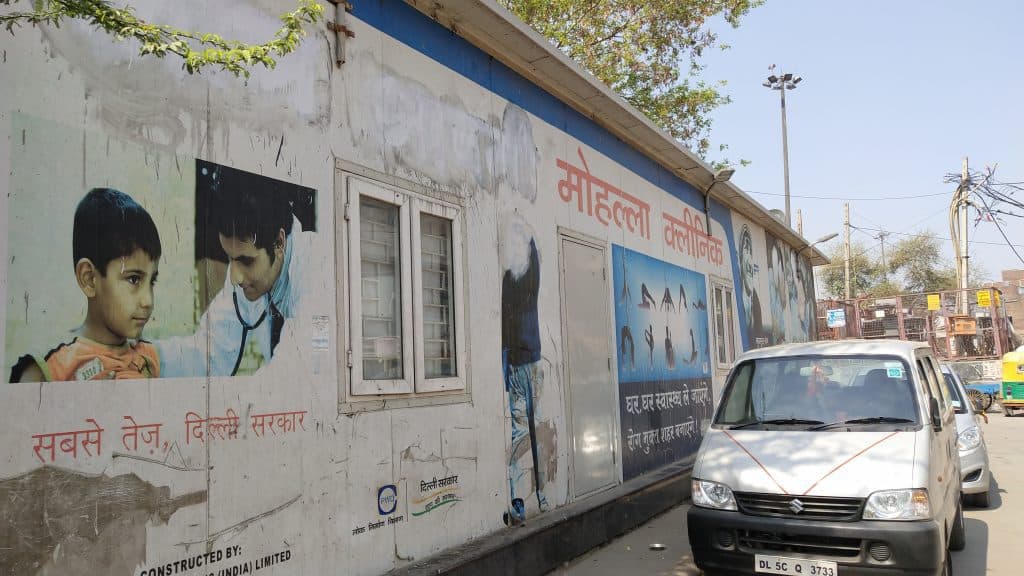Rupees 10 crore may seem a small number. But the cause that prompted the Delhi government to allocate this sum is at once extraordinarily human, and extremely rare. Building a boarding school for children whose home generally are the pavements, road dividers, under flyovers and outside stations and temples. It is a miniscule part of the Rs 75,800 crore total Delhi budget, presented by Delhi Finance Minister Manish Sisodia.
Efforts to bring these street kids into the mainstream education stream have failed so far. A boarding school for them will be a small step in that direction, Sisodia hopes, and that it will provide a stable environment conducive for the education and growth of children from the capital’s marginalised sections.
But job creation, emphasised by Chief Minister Arvind Kejriwal and everyone else down the line before the budget, is the cornerstone of this latest budget. Kejriwal called it a “Rozgar (Livelihood) Budget”, to be achieved by reviving the city’s economy.
The budget targets creation of 20 lakh jobs, increasing the employment level from the present 33% to 45%.
Another area that has got a big chunk of 21.47% or Rs 16,278 crores of the total Delhi budget is Aadmi Party’s priority sector, education. Continuing with its many other initiatives, the government intends setting up a School Science Museum, aimed at kindling the curiosity of children and inculcating in them an interest in science.
Read more: Teaching entrepreneurial mindset: From the drawing board to the marketplace
From the next financial year, the Business Blasters programme will be extended to private schools in the capital along with government schools so that students studying in both government and private schools can study to develop a mindset of becoming job creators. Students in classes 11 and 12 are mentored and provided financial capital of ₹2,000 as seed money to help finance their business ideas.
Highlights of the Delhi budget
Job creation
- One lakh “green” jobs will be created in the next year by promoting rooftop farming, urban farming and rooftop solar plants with cumulative capacity of 2500mw
- The focus sectors for job creation include retail, food and beverage, logistics, supply, travel and tourism, entertainment, real estate and green energy.
- Delhi’s major traditional bazaars will be redeveloped and traders here will be able to access global markets through a “bazar portal”
- Gandhi Nagar, where all kinds of denim ware are manufactured for others to brand and sell, will be developed as a garment hub.
- Food trucks can remain open till 2am with budget enabling and incentivising the setting up of such trucks
- Industrial areas that have failed to attract investors and remain substandard will be redeveloped
- To address inflation, the government has mentioned free facilities provided by the state government — education, healthcare, electricity, water and free travel for women In Delhi Transport Corporation’s buses.
Healthcare
- The Delhi budget allots Rs 9769 crore for the health sector in 2022-23, compared to Rs 9934 crore in 2021-22, when the allocation saw a steep increase of 29% on account of COVID.
- The new proposals include construction of four new hospitals with a total of 2716 beds and remodelling of 15 existing hospitals, for which Rs 1900 crore has been allocated. When complete, this will take up available hospital beds in the Delhi government sector by 16,000.

- A sum of Rs 475 crores has been earmarked for strengthening existing and setting up new mohalla clinics as well as polyclinics.
- There is no specific allocation for free COVID vaccination. But a sum of Rs 15 crores has been allocated for Aam Aadmi Yogshala
Read more: Delhi Report Card 5: How healthcare in Delhi has changed during the AAP tenure
Public transport
- The transport department has been allocated Rs 9539 crores, which is 13% of the total Delhi budget.
- City bus transport will get a fillip with the construction of 1397 modern, high tech bus stops with CCTV cameras, GPS trackers, panic buttons for the safety of women and children, announcements about arrival and departure of buses to help the visually impaired, LED automatic lights and ramps for the disabled. A sum of Rs 75 crores has been allocated for this.
- A sum of Rs 280 crores has been earmarked for marshals in the buses.
- The Delhi Electric Vehicles Policy introduced in August 2020 aims at ensuring that one out of four vehicles in the capital is an EV, by 2024. This is aimed as much at job creation as controlling air pollution. The government will issue 5000 e-auto permits every year for the next five years, which is expected to create 25,000 new jobs.
- The government estimates that sales of EVs, their repair and maintenance, operation and maintenance of charging stations will create another 20,000 new jobs.
The full budget can be read at https://finance.delhigovt.nic.in/content/budget-glance-2022-23